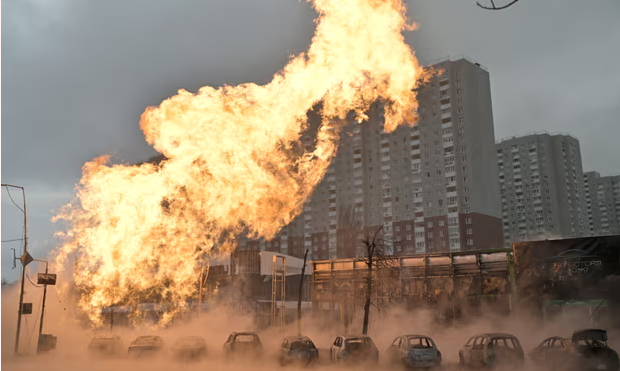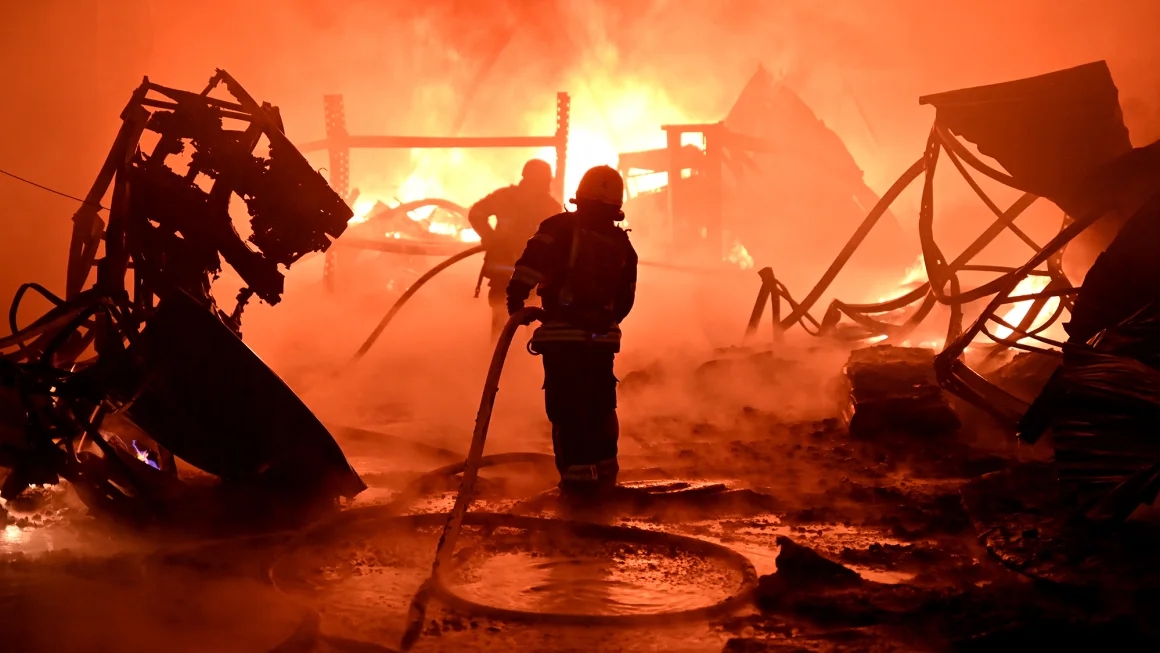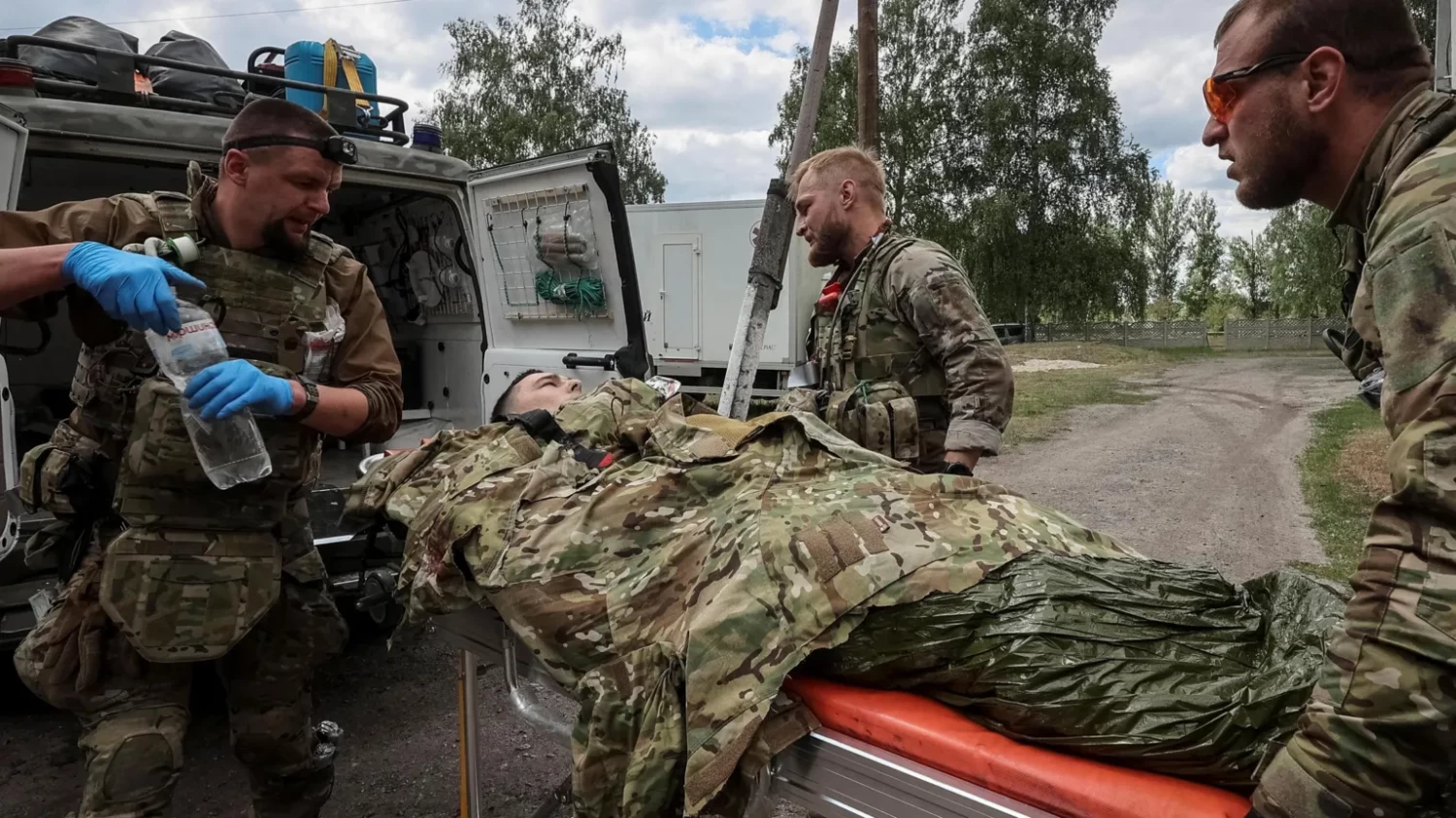Analysis | Renewed Russian strikes offer grim portent for Ukraine in 2024

Scenes of devastation have greeted Ukrainians in the first days of 2024, as Russia launches some of its heaviest missile and drone barrages since the start of the war.
The strikes, which began on 29 December and have killed dozens of civilians, offer an early and grim taste of what may lie ahead, as Moscow signals it has the capacity for a long and brutal war in Ukraine.
“Put simply, Russia has now transitioned its economy on to a war footing,” said Justin Bronk, a senior research fellow at the Royal United Services Institute.
While western intelligence officials once predicted that the Russian military would soon exhaust its combat capabilities and be forced to bring its offensive to a grinding halt, Moscow has managed to mobilise its industrial base, producing significantly more than before the war.
It has doubled its defence budget to support the war and regenerate some of its lost combat power. Its production of long-range missiles used on Ukrainians is now more than 100 a month, up from about 40, Bronk said.
The scale of the attack in the last days, which Putin has vowed to only increase, confirms what many in Ukraine have dreaded for months – that Moscow has been preserving its missile stocks for intense strikes in the winter
The end goal of the barrage, observers say, appears to be to force Ukraine to exhaust its valuable western Patriot and Nasams air defence missiles at a time when the US and EU have halted their military aid, leading to a scenario where Ukraine could find itself without air protection.
Moscow has also ramped up its production of artillery munitions, an increase which is supplemented by North Korea, which is believed to have sent more than 1m rounds to Russia via 10 shipments since August.
Artillery has been seen as crucial for Ukraine and Russia, with some analysts calling it the “king of battle” despite a focus on newer, hi-tech weapons.
“Russia has a three-to-one artillery advantage on the frontlines, if not more,” said Michael Kofman, a prominent analyst on the war, in a recent podcast for the War on the Rocks platform.
In the same podcast, Andriy Zagorodnyuk, a former Ukrainian defence minister, described the situation for Kyiv’s frontline troops as “extremely tough … pretty much across the whole line.
“We are not in an optimistic, relaxed mode. But there is no despair,” he added.
Despite a failed summer counteroffensive during a year in which Ukraine liberated 153 sq miles (395 sq km) but lost 264 sq miles, the country’s president, Volodymyr Zelenskiy, has been eager to focus on the positives.
In an interview with the Economist on Tuesday, he praised his armed forces for breaking through Russia’s blockade of the Black Sea in 2023, with the country now shipping millions of tonnes of grain using a new route that hugs Ukraine’s southern coast.
In the process, Kyiv has destroyed 20% of Russia’s Black Sea fleet, according to the UK defence ministry, most recently sinking the Novocherkassk landing ship.
Zelenskiy suggested in his interview that Kyiv was likely to continue its series of deep strikes on occupied Crimea, with the intention of isolating the peninsula that Russia annexed in 2014.
Ukraine was boosting its military production as well, Zelenskiy said, aiming to produce 1m drones next year. Kyiv has also begun to partner with western weapons manufacturers – including in the US, UK and Germany – to advance production and trade agreements that Zelenskiy said could “launch defence projects that will be significant for the security of entire Europe”.
And while Russian troops have taken the initiative on the frontlines, Moscow has failed to make any tangible breakthrough, with its forces believed to have suffered some of the country’s biggest casualty rates so far as a result of continued “heavy but inconclusive” fighting around the Donetsk oblast town of Avdiivka.
Still, in the short term, Ukraine will have to think defensively. “Ukraine needs to enact a prepared defence and begin digging in for the winter,” Kofman said.
Then there is the issue of troop mobilisation. Neither the Ukrainian president nor his top military staff appear to want to take responsibility for the unpopular decision to draft more fighters, with the topic becoming a bone of contention.
For now, as Russian bombs fall on Ukraine, the prospect of any peace negotiations appears unlikely.
Despite recent media reports having claimed that Putin was to open ceasefire talks, the Russian leader’s latest rhetoric is reminiscent of the most bullish period at the beginning of the war, when he demanded Ukraine’s unconditional surrender.
Russia’s foreign ministry falsely portrayed Ukraine as being overrun by far-right extremists on Monday, saying on social media that the country “must be completely denazified and demilitarised”, using terms that Russian officials use to imply Ukraine’s total capitulation.
As the Kremlin’s confidence grows, Russian strikes in the days and weeks ahead will test the morale of Ukraine, which has soured over the months as war exhaustion took hold.
But some say the attacks will only bring Ukrainians closer together and revive the sense of existential threat, which Zelenskiy said many Ukrainians have lost.
“Russia wants to scare Ukraine with missiles and keep all people in fear,” wrote the Ukrainian journalist Kristina Berdynskykh.
“But each such massive attack on Ukraine, on the contrary, unites people against Russia and puts all internal disputes on the back burner.”
Keywords
Newer articles
<p>The ceremony was held in Moscow amid a tense geopolitical situation and diplomatic rift with the West</p>
West has a decision to make – Putin
Craig David, a hitmaker since 2000, is still getting audiences dancing
For Putin, Gaza is an endless gift
TikTok Ban Sparks Lawsuit Pitting National Security Concerns Against First Amendment Rights
Bombshell new theory on Titan sub disaster
Doja Cat’s pre-Met Gala wardrobe malfunction
Russia pounds Ukraine with biggest airstrikes in weeks
Harry confirms epic King Charles snub
Woman'sCanadian citizenship revoked after 32 years amid 'error'




